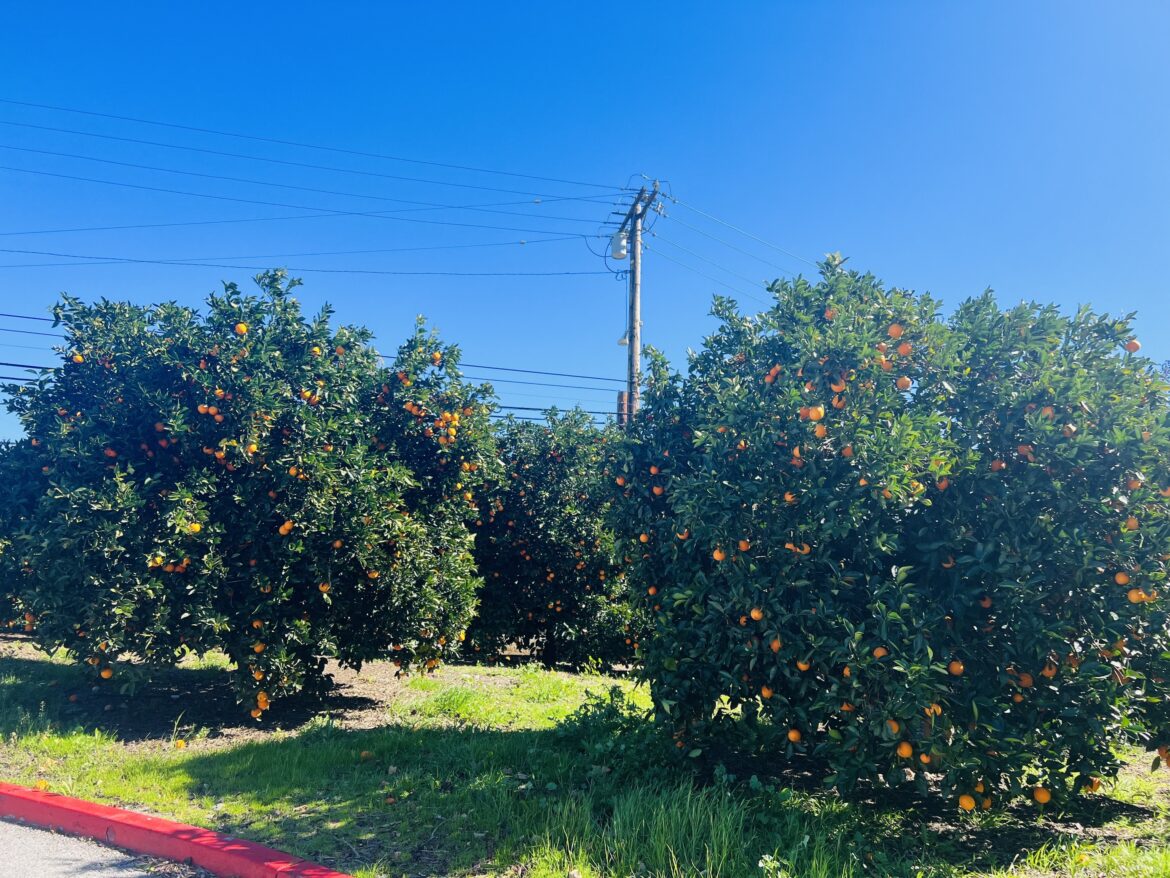The orange trees surrounding the university are an important part of campus, providing both aesthetics and fruit to the community. Oranges are important to the city of Redlands’ history, with over 184 acres of orange groves, according to the City of Redlands Citrus Division website. The smaller, on campus groves can be found lining Grove St. behind East Hall and behind the tennis courts.
“The City of Redlands was, for almost three-quarters of a century, at the heart of the largest navel orange producing region in the world,” reads the City of Redlands Citrus Heritage page. Today, there is still one packing house distributing the oranges grown, with the revenue going back into the preservation of Redlands citrus groves. However, a recent threat to the historic groves has emerged.
The Oriental Fruit Fly, an invasive species that attacks oranges, poses a threat to these historic groves on and off campus. These flies destroy oranges by burrowing into the fruit and causing the inside to decay and rot, making the oranges unsuitable to eat. The Oriental Fruit Fly originates from Southern Asia and Africa, according to the USDA. It was first found in Hawaii in the 1940s, then in Florida in 2002 and 2015, and in California every year since 1960. It has found its way to San Bernardino County, California, causing a quarantine zone of 112 square miles to be implemented, says the City of Redlands site.
The California Department of Food and Agriculture (CDFA) stated officials were to begin removing fruit in Redlands starting in late January due to the threat. The fly can also impact other produce such as avocados and apples, but oranges are the main produce grown in Redlands. If these flies were to spread throughout California, it could be detrimental to the food supply relied on by many.
On Jan. 30, university students received an email from Teresa Webster, Environmental Health and Safety Manager, and Erin Sanborn, Director of Sustainable Education, Community Service Learning. The message informed students about the threat the Oriental Fruit Fly poses.
The message encouraged students to not remove fruit from campus, but that the oranges are still safe for consumption on campus grounds. Fruit collected from trees on campus will be used by Harvest Table in order to reduce spreading of the Oriental Fruit Fly from transport. The inedible oranges should be double bagged and placed in the trash.
Students can help by ensuring they’re consuming any oranges on campus and not transporting them, and throwing away any rotting oranges.
Photo by Adelaide Hubble.
Adelaide Hubble is a freshman majoring in environmental studies and minoring in spatial studies. She enjoys writing about club events and any important issues on campus. Adelaide is from Las Vegas and likes to listen to 80s/90s alternative rock and explore coffee shops in her free time.




